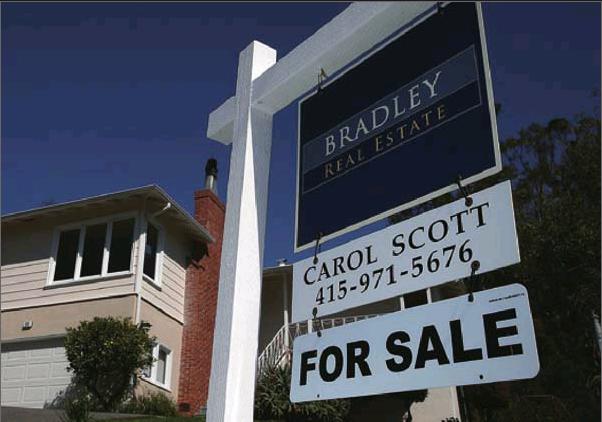Land Grab
2016-07-12ByCorrieDosh
By+Corrie+Dosh

Investors are pumping Chinese capital into the U.S. real estate market, which totaled a whopping $350 billion in U.S. commercial and residential investments by 2015, according to a new report by Asia Society and the Rosen Consulting Group (RCG).
“This wave of investment is coming from diverse sources in China,” said Arthur Margon, a partner at RCG and one of the authors of the report. “But thats really a small piece of the potential investor universe.”
The report, named Breaking Ground: Chinese Investment in U.S. Real Estate, shows that Chinese investors bought at least $17.1 billion worth of existing commercial property space from 2010 to 2015 at an annual growth rate of 70 percent. Investors spent at least $93 billion on residential real estate in those five years, at an annual growth rate of 20 percent. In addition, Chinese investors bought up $208 billion of mortgage-backed securities.
“More than any foreign investor other than Canada, China stands out for the breadth, depth, and speed of its participation in the U.S. real estate market,” stated Asia Society in a release accompanying the study.
The report combined information from public records, reports and trade groups with the RCGs database—based in part on datagathering and roundtable interviews with industry sources. Breaking Ground is the fourth report in a series dating back to 2011 that looks at the broader phenomenon of Chinese investment in the United States. Past reports, produced in partnership between Asia Society and Rhodium Group, have looked at foreign direct investments from China at the national level and in California, as well as focused on investments in the hi-tech sector.
The broad range of real estate investments is in addition to Chinas position as the biggest holder of mortgage-backed securities sold by government-funded enterprises such as Fannie Mae and Freddie Mac. Chinese banks have also become major sources of debt capital in the U.S. real estate market, primarily for U.S. firms.
The report is the first independent study to prove that Chinese investors rank among the top in every real estate sector, according to Margon.
“There are strong signals that there will be continued, maybe even increasing appetite,”said Margon, during an event at New Yorks Asia Society.
Tip of the iceberg
According to the study, 2015 was the banner year for Chinese real estate investors, with billion-dollar deals such as the prized $1.95-billion Waldorf Astoria hotel in New York City. Chinese buyers poured money into New York, Los Angeles and San Francisco and overtook Canada as the biggest foreign buyer of U.S. homes. Statistics show that foreign direct investment in the United States by China in 2015 totaled about $8.39 billion, an increase of 60.1 percent from 2014. Chinese investment in the U.S. real estate market reached $6.1 billion.
However, it may just have been the tip of the iceberg, according to the report, projecting that Chinese real estate spending could hit$218 billion from 2016 to 2020. Huge deals are already making headlines, including a $6.5-billion deal to acquire Strategic Hotels & Resorts and a $14-billion offer for Starwood Hotels that was rescinded by a consortium of buyers led by Chinas Anbang Insurance Group.
In the first half of this year, Chinese companies have purchased or are purchasing 47 properties worth $9.3 billion in the United States, according to deal tracker Real Capital Analytics. That amount more than doubled Canadas $4.2 billion worth of deals, making Chinese companies the most active foreign buyers in the United States.
Leading the surge are deep-pocketed insurance companies, seeking to diversify their capital investments against risk. China Life Insurance Co. and Ping An Insurance Co. jointly made their first U.S. property investment last year with a majority stake in a $500-million project in Boston. In May, China Life Insurance Co. made headlines again with a $1.65-billion deal for an unspecified piece of a Manhattan office tower led by developer Scott Rechler.
In an analysis by Barrons, Chinas wealthy are not only snapping up homes and luxury apartments (mostly with cash), but theyre also investing in funds and partnerships that are buying into commercial projects.
A combination of policy reform, economic conditions and opportunities for growth is driving Chinese investment in overseas real estate, offering an attractive investment for many investors.
“Chinese builders and developers are looking to expand into attractive global markets for the long term as the Chinese economy slows, and to improve their competitiveness, global stature, and brand recognition. Chinas growing financial sector—banks, insurance companies and emerging private equity groups—are looking to invest globally as they accumulate capital from businesses and consumers in China,” explain the authors in the report.
The report goes even further to state that high net-worth Chinese may also view overseas real estate as a means to provide international opportunities for their children, and a safe haven from political and economic uncertainty in China. “Finally, real estate investment and ownership can potentially offer an expedited path to Chinese families who want U.S. residency for work and educational opportunities,” said the report.
Making an impact
As the U.S. real estate market recovers from the 2008 recession, China has been an important source of capital. The report estimates that Chinese entities managing U.S. real estate operations and individual investment through vehicles, including the EB-5 program, may have created or sustained 200,000 jobs.
The EB-5 U.S. visa program enables a foreign national who invests at least $500,000 in projects that create a minimum of 10 jobs to receive a U.S. visa and, on completion of the project, a green card for permanent residency status. Since 2010, Chinese nationals have been the most numerous participants in the program with $9.5 billion of investment capital.
“Chinese investment in U.S. real estate is a recent development with considerable growth potential. While it is not as politically sensitive and does not directly impact national security as Chinese investment in U.S. technology or telecommunications does, real estate affects more people and communities and involves policy makers at multiple levels,” state the reports authors.
Chinese capital is also helping homebuyers and U.S. commercial developers. According to the report, Chinese banks increased activity in lending for real estate acquisitions, recapitalizations, and construction and development in recent years. The banks have amassed at least$8 billion in loans and have become a major source of funding for large commercial real estate projects. This loan portfolio extends beyond Chinese investors and projects with Chinese partners, as leading Chinese banks are active competitors with U.S. and international banks and private sources of capital in the commercial property market. Residential mortgage lending by Chinese banks in the United States is more limited, but growing.
“The long-term investment drivers remain,”the report authors state. “Strong U.S. demand for capital; a widening and deepening pool of Chinese investors, many of whom have not ventured into U.S. real estate; increasing global appetite by Chinese developers and construction companies; a $1.6-trillion insurance industry that has become active overseas but invested just a fraction of funds available for real estate projects; and new Chinese investment vehicles, such as private equity funds, which have only recently become a factor in the U.S. market.”
